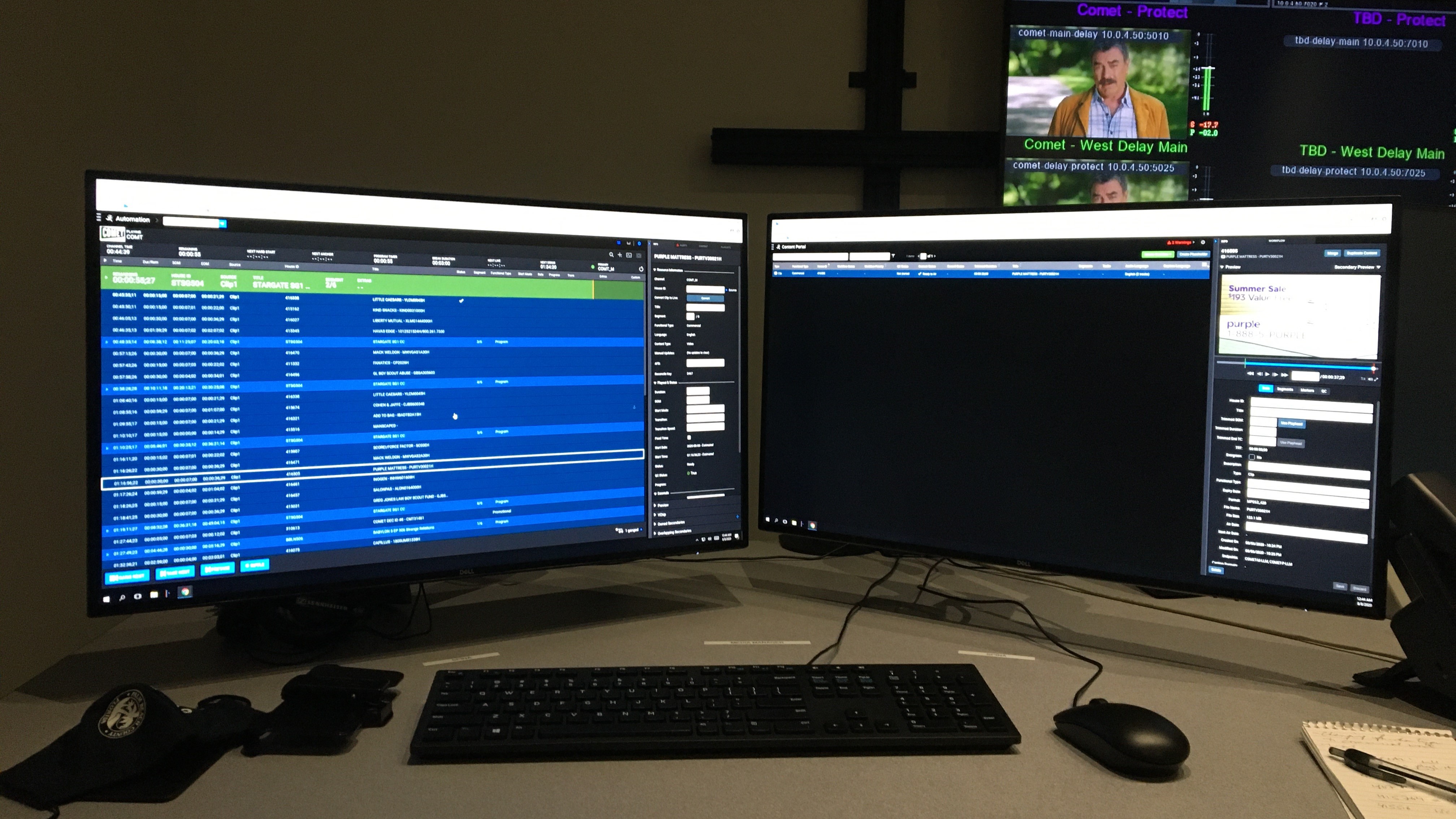Sinclair Takes Playout to the Cloud With Imagine’s Versio
Sinclair went with a known commodity in transitioning three stations to the cloud

HUNT VALLEY, Md.—Early in 2020, Sinclair made the business and operational decision to migrate three of our national networks—Comet, Charge! and TBD—to automation and playout in the public cloud. This entirely new infrastructure and services platform allowed us to take a green field approach and let us consider how we really wanted to operate.
As a broadcaster, we sought to add value by streamlining the media supplychain and operations workflows, automating processes to remove manual touch points and reducing the effort required to build and maintain racks of equipment. We looked to remove the hardware wherever practical and move the signaling processes from manual operations to embedded in the creation of the linear stream itself.
We had some experience in public cloud playout in the past, with Imagine Communications as our primary technology partner. It made sense to build on this experience, as we were already familiar and comfortable with the Versio platform. This time we decided to originate these channels from Versio playout instances controlled by Versio automation and running within AWS.
FAST AND SIMPLE
The first thing to say about cloud playout and automation is that it is swift to implement. Our timeline was to design in April, start implementation in May and finish in the third quarter. That left us with development testing in June and production deployment in July and August, in time for shadowing in September when we also went on air. All this took place in a year when external forces limited everybody’s mobility and every design, implementation and training session was remote.
This is a big point in favor of the cloud. With automated infrastructure deployments, you can build large infrastructures in days, not weeks, and without any requirement for hands-on servers, switches and storage.
The second point is that this migration allowed us to streamline our playout operations with extensive automation. The software and infrastructure now leverage the metadata that accompanies our media to ensure it’s in the correct distribution path with the correct segment timings, and that any information that does need manual review is handled by exception.
Public cloud serverless computing means our traffic team no longer works from a spreadsheet—the BXF segment timings are reformatted, embedded in a message and distributed.
EVOLVING WITH THE TIMES
Similar to letting our metadata drive multiple outputs, our linear stream itself now serves multiple distribution paths. Our streams used to be created individually, with broadcast sent to LTN Global for distribution and separately sent to digital encoders for OTT. Now the same stream serves broadcast and digital using embedded signaling.
What are the results? First and most obvious, we are much more efficient. We have increased our capability for ad delivery and distribution, which is critical to any media company.
Second, we are no longer constrained by hardware, making our operations more flexible. We’re not stuck making assumptions that we’ll need to live with or face as obstacles in the future. We’ll build the system we need now and as business requirements change, we can change with them.
Essentially, our architecture does not age, it evolves. As AWS, Imagine or one of the other partner providers innovate, we can quickly take advantage of any new capabilities.
It becomes a living system on which we can improve and innovate at any time we choose. That gives us remarkable flexibility as a broadcaster: The freedom to efficiently match infrastructure and operations to business models.
Mike Kralec is vice president of Technical Operations and deputy CTO at Sinclair Broadcast Group, responsible for media technology and operations. He can be contacted at mkralec@sbgtv.com.
For more information, contact Imagine Communications at 866-446-2446 or visit www.imaginecommunications.com.
Get the TV Tech Newsletter
The professional video industry's #1 source for news, trends and product and tech information. Sign up below.
